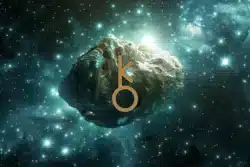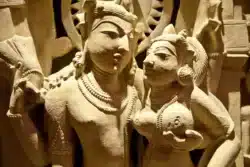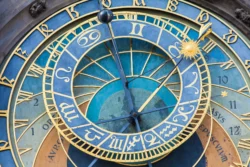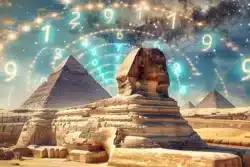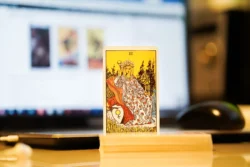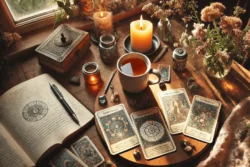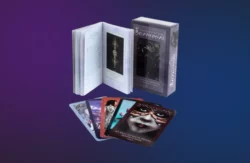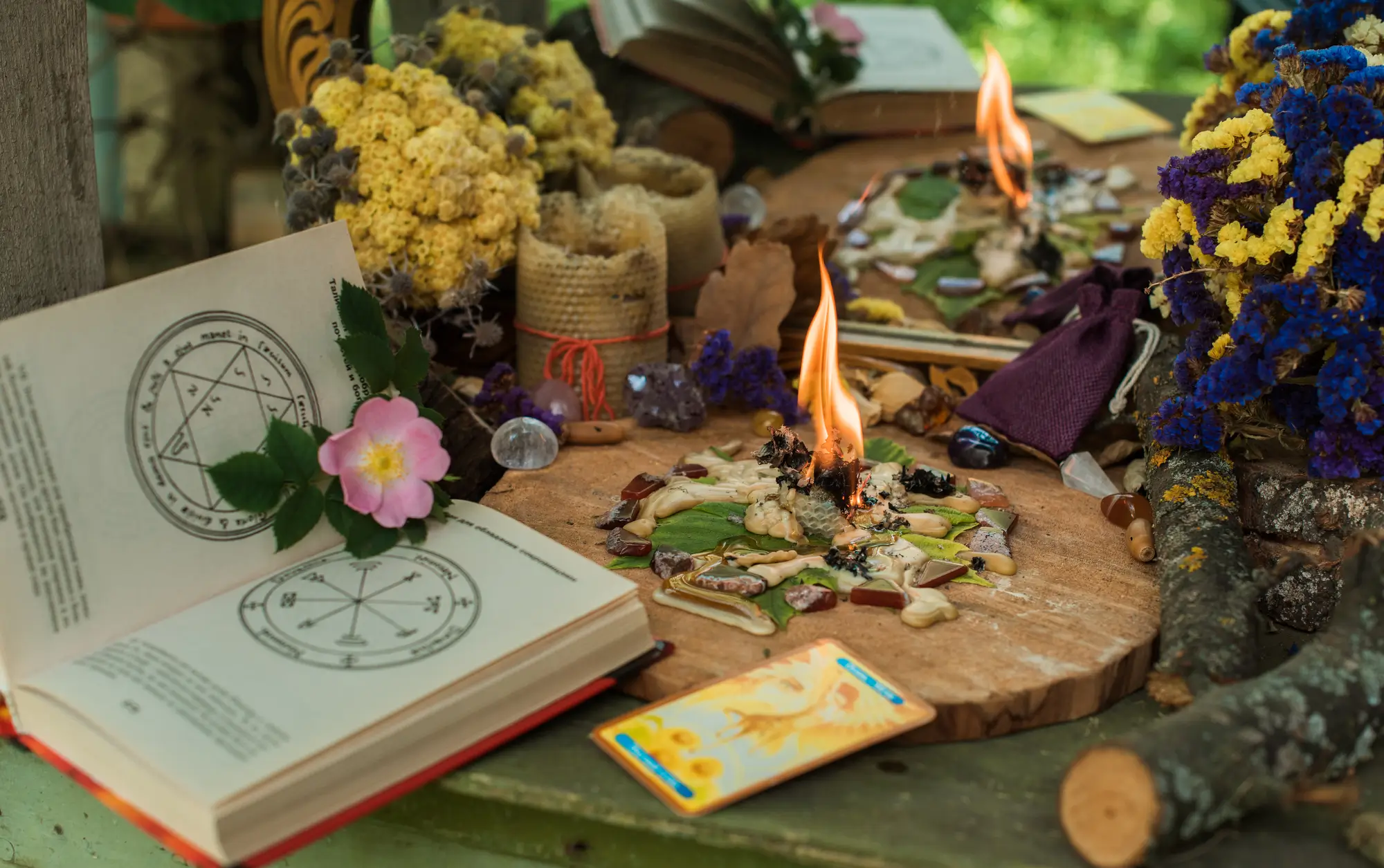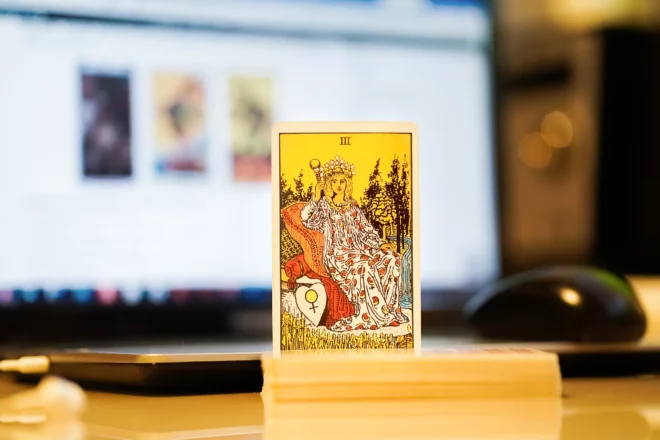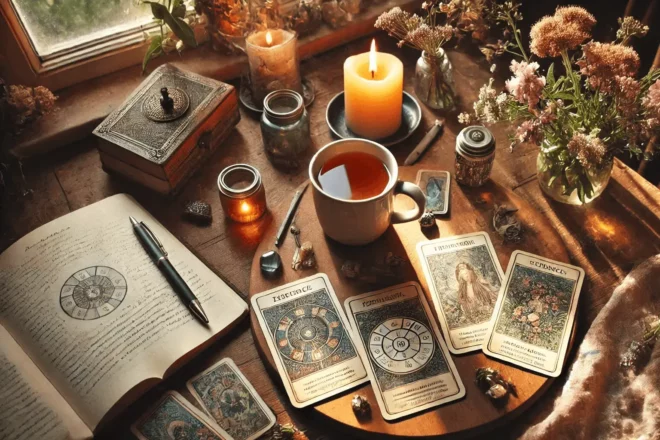After the holidays, you become glum because the festivities are over, and all you have to look forward to are paying credit card bills from the gifts you bought and a long winter ahead. And by February rolls around, you are extremely tired of the snow and cold. However, there is another thing about February that is quite positive because that is when you start seeing a flicker of light at the end of a very long, cold tunnel. There are a few more weeks of winter to go, and you can see that based on how the days are noticeably longer than they were a month prior. Spring is approaching soon, and you can welcome the preparation for spring by celebrating the Imbolc Sabbat, which starts from sundown on February 1st to the 2nd. Let’s review Imbolc and the traditions and do a collective tarot reading for the season.
What Is Imbolc And What Are The Origins?
Imbolc is a pagan Sabbat, as it symbolizes the halfway point between Yule or the Winter Solstice and Ostara, which is the vernal equinox. “Imbolc” means “in the mother’s belly” as the spring seeds begin to germinate in Mother Earth’s womb. Sometimes Imbolc is known as Candlemas or Oilmelc, as the celebration originated from the Celtic tradition.
Imbolc originated in pre-Christian Britain and Ireland, as the earliest mentions of the Sabbat were discovered in tenth-century Irish literature as a poem referring to ewe’s milk (the meaning of Oilmelc). The poem was about purification, and the speculation was that the Imbolc rituals began when sheep were being bred and lactating.
Next after this publicity
Since Imbolc is a celebration of fertility, celebrations honored the pagan goddess Brigid, who gave blessings for fertility and was the goddess to inspire creativity. Historians and poets in ancient Britain and Ireland worshipped Brigid, known as the Filid. Celts would celebrate Imbolc as they expected Brigid to visit them by crafting the sculpture of Brigid using oat bundles and wheat straw, as they would dress the doll and place it in a basket on the night of February 1st.
Their Imbolc traditions also consisted of making a tribute to Brigid by lamp burning and lighting bonfires. However, Christianity adopted Brigid when it took over Ireland and Britain. It called her St. Brigid, also known as Bridget, as she became the saint of Irish newborns, midwives, nuns, cattle, and dairy maids.
Imbolc rituals included weather divination; in Europe, the hedgehog was in charge of it. If the hedgehog saw its shadow, it would return to the den, which means winter would not end for another six weeks. However, if it did not see its shadow, then an early spring was predicted.
European settlers to North America who kept up with the pagan Imbolc traditions used the groundhog instead for weather divination, hence the origins of Groundhog Day. Now, let’s discuss the everyday modern pagan Imbolc rituals.
What Are Some Common Imbolc Rituals?
Pagans celebrate Imbolc in various ways, but there are some rituals that they share in common with one another. One common ritual is setting up an altar using a table or a bookshelf. If you want to celebrate Imbolc, then setting up an altar is something you will want to do. Depending on the space you have for it, you can add as many items as you would like. The colors associated with Imbolc are red, green, and white, and you can get a cloth of either of those colors to color the altar because they are the colors associated with Brigid.
Next after this publicity
White represents snow, red is the sun beginning to rise, and green is fertility and the earth under the snow. You will also want to get several candles that have those colors. The number of candles to get is up to you because of your space on the altar. And you can place some spring flowers on the altar, such as daffodils, crocus, forsythia, and snowdrops. You can also get a Brigid corn doll and put it on the altar and a poem, as she is the patroness of poets.
You will also want to add some crystals to your altar, as the stones associated with Imbolc are bloodstone, onyx, turquoise, ruby, and amethyst.
Another idea of Imbolc’s items on the altar is having small statues of swans, sheep, or cattle as they are sacred to Imbolc. And since Brigid is the goddess of smithcraft, you can put a small hammer or anvil on there. Chalices or cauldrons are other items you can place on there, as Brigid is connected to healing waters, wells, and springs.
Baking desserts with dairy and eggs is another Imbolc ritual; you can also add slices of baked goods on the altar if there is room.
However, before setting up your altar, you want to create a ritual that involves purification. You can take a shower or bath as you soak yourself or meditate as you purify yourself. And you can envision a white light surrounding you and cleansing you if you choose. You can use Epsom salts and other herbs if you choose to bathe. Then, after you dry and dress, you can set your altar.
Aside from setting up your altar and cleansing yourself before doing so, you can do many other things. Many pagans do a cleaning ritual as they clean their homes, and this is a great time to do a spring cleaning to clear away items that you no longer need, so you have the room and space for the spring.
Next after this publicity
When it comes to meals, many Imbolc dishes involve roasted meats such as mutton and lamb (and if you are a vegan, you can substitute this with vegan substitutes), old-fashioned desserts, and hearty bread. Consider dairy too, so you can add cheese, butter, milk, winter vegetables, dried fruit, and seeds. Now, let’s review some rituals you can do to make Imbolc more meaningful.
How Can You Make Imbolc More Meaningful?
You can add other rituals to make the Sabbat more meaningful to you. Since Valentine’s Day is coming up, if you have a significant other, you can always enjoy having a candlelit dinner and place red, white, and green candles in your kitchen, too. That can make the Sabbat more intimate. If this is not an option, you can do other meaningful activities.
If the weather permits walk outside, show appreciation for Mother Earth, and enjoy the lengthening days and increased sunlight. You can meditate outdoors and visualize what you want to manifest for the year.
One thing that you should do during any Sabbat is to take your journal and begin writing in it, anything that is on your mind, as well as anything you would like to accomplish in a candlelit room. And you will also want to do a tarot spread for Imbolc to see what energies are in store for you for the season. Let’s do a collective Imbolc tarot spread now.
2024 Imbolc Tarot Spread
Here is a six-card collective tarot spread, which I got from The Curious Card Slinger. The first card represents “pause,” which asks you to look at something you may have avoided or not noticed. The second card is “purify,” indicating an area of your life that needs clearing. The third is “sacrifice,” which asks what you must remove to help facilitate the clearing. The fourth is “sow,” as this card asks you where your energy and intentions can be best focused. The fifth is “grow,” which asks what is brewing in you that needs to be honored. And the sixth card is “nurture,” which asks how to nurture yourself and others best.
The way you position the cards is up to you! So, let’s explore this reading. The cards pulled are:
Let’s elaborate on what each card tells you.
Card One: Six of Swords
The first card represents “pause,” as it asks what you need to see when you fail to notice or avoid, which is the Six of Swords.
The Six of Swords means transitioning, leaving behind what was familiar, and moving towards the unknown. This could be a physical or metaphorical journey related to personal growth. It may not be easy, but it’s necessary for your development. Therefore, this means that you are not noticing the areas of your life that may be stunting your growth, and it is time to reflect and see how you can address those areas to leave behind so you can move forward, even though it will not be easy.
Card Two: King of Wands
The second card is “purify,” indicating an area of your life that needs clearing, and the King of Wands comes up. The King of Wands represents a natural-born leader who is charismatic, ambitious, and visionary. This could represent you or someone else in your life. Typically, it suggests you have the vision and determination to achieve your goals. However, this can mean a few things. One meaning of this card is that there is someone in your life who matches the description of the King of Wands that may not be outside your best interest to spend much time with or to let go of if you can do that. Secondly, if that is not the case, you need to look at your ambitions and goals and reconsider some of them or your approach to attaining them.
Card Three: Fool
The third is “sacrifice,” which asks what you must remove to help facilitate the clearing, the Fool. The Fool card represents new beginnings, opportunities, and faith in the future. However, in this case, the advice is not to examine this issue independently or in ways you have never tried. You may end up skirting away from the issue. Talk to a coach or therapist or someone you know can help you. Also, the other possibility is if you find that your ambitions are for the wrong reasons and they don’t serve you, it is a message to start over.
Card Four: Eight of Cups
The fourth is “sow,” as this card asks you where your energy and intentions can be best focused, and the Eight of Cups comes up. The Eight of Cups suggests you feel compelled to leave a disappointing or unsatisfying situation. It’s a card of transition and change, leaving behind what is familiar and moving toward your true purpose. This card supports the others that have come up, so walking away from something or someone who no longer serves you is the best way to go so you can move forward.
Card Five: Nine of Swords
The fifth is “grow,” which asks what is brewing in you that needs to be honored, and the Nine of Swords comes up. The Nine of Swords indicates that you may be feeling anxiety, fear, or guilt. These feelings may keep you awake at night, causing you to overthink or worry excessively. It’s important to remember that your fears may be worse than the reality of the situation, but you do want to honor your feelings and find a way to work with them, as they are valid, and you are feeling this way for a reason.
Card Six: Chariot
The sixth card is “nurture,” which asks how to nurture yourself and others best, and the Chariot comes up. The Chariot card represents determination, willpower, and strength. It suggests that you can overcome obstacles and control your destiny. It’s a card of victory, meaning overcoming challenges and achieving goals. Therefore, the best way to nurture yourself is to keep going in the face of adversity, and you are encouraging others by doing this by inspiring them so they can do the same.
Overall, this reading suggests that you are in significant change and transition. You may feel anxious or fearful, but you have the strength, determination, and vision to overcome these challenges. Trust in the journey, even if unfamiliar, and believe in your abilities. That is your reading for Imbolc.
Imbolc is the Sabbat, the halfway point between Yule and Ostara, which celebrates the seeds germinating for spring. The days are getting longer, and the nights are getting shorter, which means the weather will soon be desirable again. There are many ways to celebrate this Sabbat, but you will want to have an altar and build it in a way that best honors goddess Brigid. This Sabbat reminds you that spring is coming, so better things are coming!




